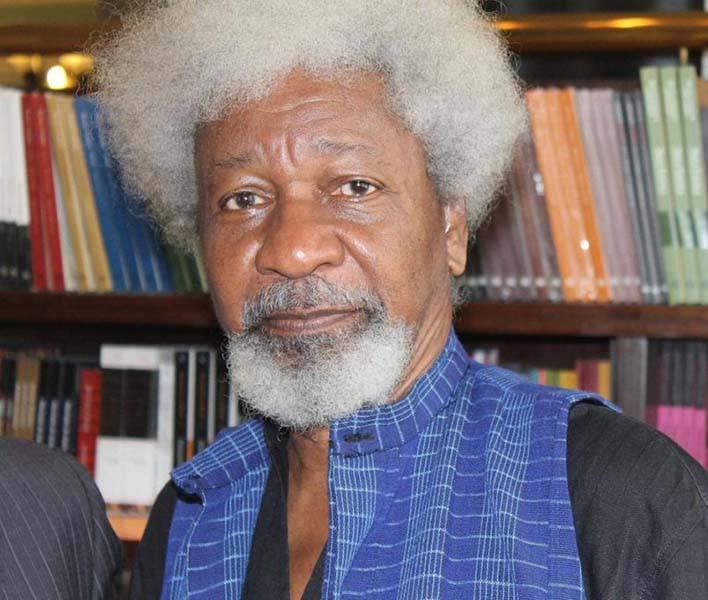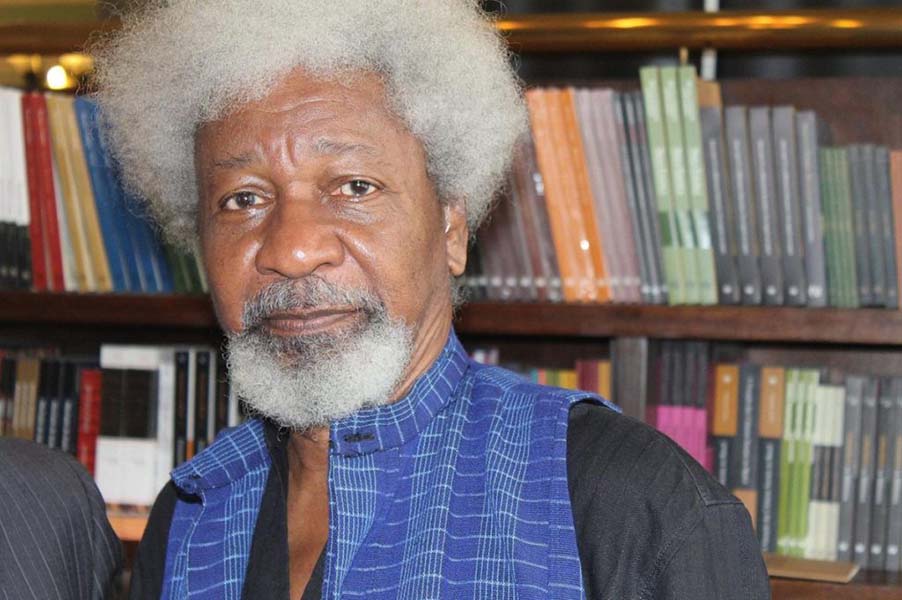Wole Soyinka, B.A., Nobel Laureate, GCON
Wole Soyinka, B.A. (Honors), Nobel Laureate, GCON, is a Nigerian writer who is Africa’s most distinguished playwright. He is Arts Professor of Theater at NYU Abu Dhabi and Professor Emeritus at Obafemi Awolowo University, with over 60 years of experience as a playwright, poet, novelist, and political activist. He is the first African to be awarded the Nobel Prize in Literature, which he received in 1986 for his “wide cultural perspective and poetic overtones fashioning the drama of existence.” Born as Akinwande Oluwole “Wole” Babatunde Soyinka, he is widely regarded as one of Africa’s greatest writers and one of the world’s most important dramatists.
As Arts Professor of Theater at NYU Abu Dhabi since 2022, Wole plays a key role in building the university’s strength within the arts and its growth as a world-class leader in global higher education. He is a multifaceted artist who ranks among contemporary Africa’s greatest writers, offering the community direct access to one of the world’s greatest thinkers.
His appointment is integral to NYUAD’s Academic Strategy and its mission as an educational institution in and of Abu Dhabi. In 2024, President Bola Tinubu renamed the National Arts Theatre in Lagos after Wole during his 90th birthday celebrations. The University of Ibadan established the Wole Soyinka Institute in November 2024 to serve the global community through research, performance, teaching, and exchange endeavors related to his life, works, and ideas. Read University of Ibadan immortalises Wole Soyinka with new Institute.
Throughout his prolific career spanning over six decades, Wole has written 25 plays, ten essay collections, seven poetry collections, five memoirs, three novels, and two translated works. The pinnacle of his international recognition came in 1986, when he was awarded the Nobel Prize in Literature, becoming the first sub-Saharan African to receive the honor. The Nobel Committee lauded him as a writer “who in a wide cultural perspective and with poetic overtones fashions the drama of existence.”
His most recent novel, Chronicles from the Land of the Happiest People on Earth (2021), marked his return to novel writing after a 48-year hiatus since Season of Anomy (1973). The book, a political satire set in contemporary Nigeria, has been described as “Wole’s greatest novel, his revenge against the insanities of the nation’s ruling class.” His dramatic works range from early comedies, such as The Lion and the Jewel (1959), to philosophical tragedies, including Death and the King’s Horseman (1975), a complex tragedy that explores the clash between Yoruba tradition and colonial authority, and is a staple of world theatre. Read the List of works by Wole Soyinka.
Wole’s political activism has been as prominent as his literary career. His life has been intertwined with Nigeria’s turbulent political history. A critic of authoritarianism, he has faced imprisonment and exile for his views. In 1967, during the Nigerian Civil War, he was arrested for attempting to broker peace between the Federal government and Biafra, resulting in 22 months of solitary confinement. This experience inspired his memoir The Man Died: Prison Notes (1972) and the poetry collection A Shuttle in the Crypt (1972).
Between 1994 and 1998, he fled Nigeria on a motorcycle and went into exile during the brutal dictatorship of General Sani Abacha, who later pronounced a death sentence on him in absentia. From abroad, Wole was a leading voice for the pro-democracy movement. His commitment to justice and democracy has remained unwavering throughout his life, leading him to destroy his U.S. Green Card in 2016 when Donald Trump was elected president. Read Wole Soyinka: The man, the writer, the enigma.
Born on July 13, 1934, in Abeokuta, Nigeria, Wole is the son of Samuel Ayodele Soyinka, an Anglican minister and headmaster, and Grace Eniola Soyinka, known as “Wild Christian,” a shopkeeper and local activist. A member of the Yoruba people, his cultural heritage profoundly influences his work, particularly through the mythology of Ogun, the god of iron and war.
Wole attended Government College in Ibadan and earned his Bachelor’s degree in English from the University of Leeds in 1958, where he later earned his doctorate in 1973. From 1958 to 1959, he worked as a dramaturgist at the Royal Court Theatre in London. His acclaimed childhood memoir, Aké: The Years of Childhood, provides a vivid account of his early life in a Yoruba community.
Returning to Nigeria in 1960 with a Rockefeller fellowship, Wole founded the theater groups “The 1960 Masks” and later the “Orisun Theatre Company” in 1964. He taught in the Nigerian Universities of Lagos, Ibadan, and Ife. He served as Professor of Comparative Literature at Obafemi Awolowo University from 1975 to 1999 and has held visiting professorships at numerous prestigious institutions, including Harvard, Yale, Cambridge, Oxford, Stanford, and Duke. He was Distinguished Scholar in Residence at Duke University in 2008 and served as Professor of Creative Writing at the University of Nevada, Las Vegas.
He received a honorary Doctor of Letters from the University of Leeds, UK in 1973. He received a honorary Doctor of Letters from Yale in 1980, a honorary Doctorate from Morehouse College in 1988, a honorary Doctor of Letters from the University of Toronto in 1992, a honorary Doctorate from Harvard University in 1993, a honorary Doctor of Letters from Emory University in 1996, a honorary Doctor of Humane Letters from UNLV in 2000, a honorary Doctorate of Letters from the University of Alberta in 2001, a honorary Doctor of Letters from Addis Ababa University in 2003, and a honorary Doctor of Humane Letters from Princeton in 2005.
Wole’s international recognition extends beyond the Nobel Prize. He received the Anisfield-Wolf Book Award in 1983 and a Lifetime Achievement Award in 2013. In December 2017, he received the Europe Theatre Prize in the “Special Prize” category for contributions that promote understanding and knowledge exchange between people. He served on the Encyclopædia Britannica Editorial Board of Advisors from 2005 to 2006 and was named a Commander of the Order of the Federal Republic (CFR) by the Nigerian government. His Nobel acceptance speech, This Past Must Address Its Present, was dedicated to South African freedom fighter Nelson Mandela. Read the List of awards and honours received by Wole Soyinka.
As a public intellectual, Wole has authored numerous influential essays, including Myth, Literature and the African World (1975) and Climate of Fear (2004), originally delivered as the Reith Lectures. His poetry collections include Idanre and Other Poems (1967) and Mandela’s Earth and Other Poems (1988). He has also translated works, including D.O. Fagunwa’s The Forest of a Thousand Daemons (1968). Read The Republic V8, N3: On Wole Soyinka.
Beyond his literary achievements, Wole’s influence extends to journalism and civic engagement. The Wole Soyinka Centre for Investigative Journalism (WSCIJ) was established in his honor, promoting investigative reporting in Nigeria through the annual Wole Soyinka Award for Investigative Reporting. His latest play, Canticles: A Pyre Foretold, premiered at the University of Ibadan in November 2024. In 2025, his seldom-produced early play, The Swamp Dwellers (1958), debuted Off-Broadway, exploring the clashes between generations, tradition, and modernity. Read At 90, Wole Soyinka Revisits His Younger, More Optimistic Self.
Wole has been married three times and is the father of eight children. His first marriage to British writer Barbara Dixon in 1958 produced a son, Olaokun. His second marriage to Nigerian librarian Olaide Idowu in 1963 brought forth four children: Moremi, Iyetade (who passed away in 2013), Peyibomi, and Ilemakin. Since 1989, he has been married to Folake Doherty, with whom he has three children: Oreunlewa, Bojode, and Eniara.
In 2014, Wole revealed his battle with prostate cancer, from which he was cured after 10 months of treatment. His dedication to his family is evident in his autobiographical work You Must Set Forth at Dawn, where he makes a touching dedication to his “stoically resigned” children and wife. Read Ebrohimie Road, Reviewed: Wole Soyinka as Father and Husband.
At 90, Wole continues to afflict political tyrannies and advocate for democracy, human rights, and cultural preservation. His work skillfully fuses Western dramatic techniques with traditional African theater, combining dance, music, and action rooted in Yoruba mythology. He divides his time between Nigeria and his international engagements, maintaining his role as a global voice for justice, artistic excellence, and African cultural expression.
Listen to his Nobel lecture. Watch his interview with freelance journalist Simon Stanford after he won his Nobel Prize. Read his Nobel Banquet Speech. Watch him read his poem “Lost Poems” from Samarkand & Other Markets I Have Known at Harvard University. Watch Writing, Theater Arts, and Political Activism at the Institute of International Studies, UC Berkeley. Listen to his BBC Reith lectures, The Changing Mask of Fear, Power of Freedom, Rhetoric that Binds and Blinds, Quest for Dignity, and I am Right; You are Dead. Read his famous quotes.
His latest activities include participation in the 2024 Wole Soyinka International Cultural Exchange Programme and continued engagement with global cultural and educational institutions. His commitment to education and mentorship continues through his teaching positions and the institutions established in his honor. Read Telephone Conversation.
Visit his Homepage, Wikipedia page, his Academy of Achievement profile, and Britannica profile. Follow him on Facebook.

